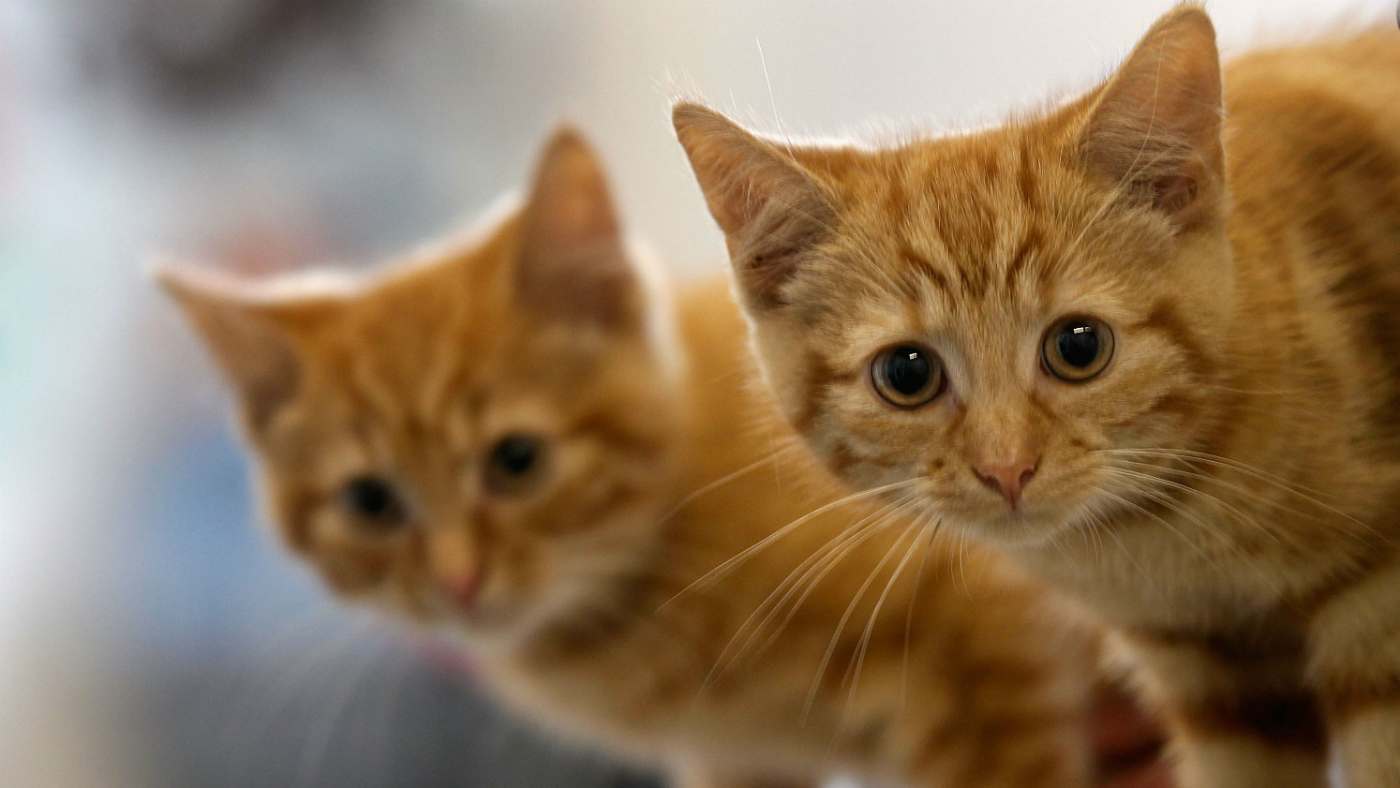How cat poo parasite can help entrepreneurs
Research finds link between Toxoplasma gondii organism and risk-taking behaviours

A free daily email with the biggest news stories of the day – and the best features from TheWeek.com
You are now subscribed
Your newsletter sign-up was successful
A brain-dwelling parasite spread to humans by cats may be driving the success of entrepreneurs worldwide, according to a new study.
The researchers classified entrepreneurial behaviour as being characterised by “high risk, high reward” activities - and uncovered a link between such behaviour and Toxoplasma gondii, an organism found in cat excrement that may cause personality changes associated with risk-taking.
The international team of scientists looked at data on almost 1,300 US students and found that those exposed to the parasite were “1.7 times more likely to be majoring in business”, Sky News reports. The infected students were also almost twice as likely to be focusing on “management and entrepreneurship” than other business-related areas, adds BT News.
The Week
Escape your echo chamber. Get the facts behind the news, plus analysis from multiple perspectives.

Sign up for The Week's Free Newsletters
From our morning news briefing to a weekly Good News Newsletter, get the best of The Week delivered directly to your inbox.
From our morning news briefing to a weekly Good News Newsletter, get the best of The Week delivered directly to your inbox.
In addition, analysis of statistics from 42 different countries found that the prevalence of the infection was a “consistent, positive predictor of entrepreneurial activity”, according to the study, published in the journal Proceedings of the Royal Society B.
The discovery suggests there may be a bizarre advantage to being infected by the parasite, also known as T. gondii.
Study author Dr Stefanie Johnson, from the University of Colorado’s Leeds School of Business, said: “Populations with higher T. gondii infection had greater intentions to start a business and higher levels of active entrepreneurship behaviours.
“Countries with higher T. gondii prevalence generally had a lower fraction of respondents who cited ‘fear of failure’ as a factor preventing them from initiating a business-related enterprise.”
A free daily email with the biggest news stories of the day – and the best features from TheWeek.com
It isn’t all good news for those infected with the parasite, however. Although it rarely produces physical symptoms other than a mild flu-like illness, T. gondii has been linked to an increase risk of car accidents, neuroticism and suicide, and can cause serious health problems for unborn babies if caught by pregnant women.
-
 ‘This is something that happens all too often’
‘This is something that happens all too often’Instant Opinion Opinion, comment and editorials of the day
-
 House votes to end Trump’s Canada tariffs
House votes to end Trump’s Canada tariffsSpeed Read Six Republicans joined with Democrats to repeal the president’s tariffs
-
 Bondi, Democrats clash over Epstein in hearing
Bondi, Democrats clash over Epstein in hearingSpeed Read Attorney General Pam Bondi ignored survivors of convicted sex offender Jeffrey Epstein and demanded that Democrats apologize to Trump
-
 Home Office worker accused of spiking mistress’s drink with abortion drug
Home Office worker accused of spiking mistress’s drink with abortion drugSpeed Read Darren Burke had failed to convince his girlfriend to terminate pregnancy
-
 In hock to Moscow: exploring Germany’s woeful energy policy
In hock to Moscow: exploring Germany’s woeful energy policySpeed Read Don’t expect Berlin to wean itself off Russian gas any time soon
-
 Were Covid restrictions dropped too soon?
Were Covid restrictions dropped too soon?Speed Read ‘Living with Covid’ is already proving problematic – just look at the travel chaos this week
-
 Inclusive Britain: a new strategy for tackling racism in the UK
Inclusive Britain: a new strategy for tackling racism in the UKSpeed Read Government has revealed action plan setting out 74 steps that ministers will take
-
 Does life really flash before our eyes when we die?
Does life really flash before our eyes when we die?feature Researchers have found that some brain waves change pattern even after blood stops flowing to the brain
-
 Sandy Hook families vs. Remington: a small victory over the gunmakers
Sandy Hook families vs. Remington: a small victory over the gunmakersSpeed Read Last week the families settled a lawsuit for $73m against the manufacturer
-
 Farmers vs. walkers: the battle over ‘Britain’s green and pleasant land’
Farmers vs. walkers: the battle over ‘Britain’s green and pleasant land’Speed Read Updated Countryside Code tells farmers: ‘be nice, say hello, share the space’
-
 Motherhood: why are we putting it off?
Motherhood: why are we putting it off?Speed Read Stats show around 50% of women in England and Wales now don’t have children by 30